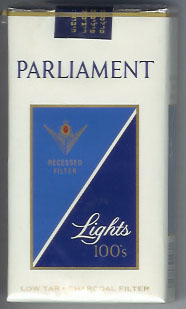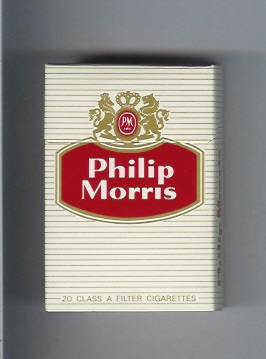
Murad was a brand of cigarettes.

Murad was a brand of cigarettes.

Turkish tobacco is sun-cured, which makes it more aromatic and, like flue-cured tobacco, more acidic than air- or smoke-cured tobacco, thus more suitable for cigarette production. [1]
In the early 1900s, manufactures of Turkish cigarettes tripled their sales and became legitimate competitors to leading brands.

The New York-based Greek tobacconist Soterios Anargyros produced the hand-rolled Murad cigarettes, made of pure Turkish tobacco. [2]
Lorillard acquired the Murad brand in 1911 through the dissolution of the Cigarette Trust, explaining the high quality of the Murad advertisements in the following years. [3]
Murad referenced the Oriental roots of their Turkish tobacco blends through pack art and advertising images. [4] Surely one of the most gorgeously over-the-top ad campaigns for any cigarette was the long-running series for Murad brand made by Rea Irvin.

Murad Cigarettes issued a series of cigarette cards featuring the university colors, pennants, and seals of various universities and colleges around 1910. Some cards also featured a vignette of a scene, some sporting like baseball, football, or golf, but others with just general scenes. Tobacco cards were often included in packs of cigarettes until the mid-twentieth century and served to stiffen the cigarette packages, advertise, and encourage product loyalty with the collectible cards.
Nevertheless, due to the rise of American cigarettes, cigarettes containing only Turkish tobacco, like Murad, Fatima, Helmar, Balkan Sobranie or those supplied by urban tobacconists like Fribourg & Treyer or Sullivan Powell in London, are no longer available. [5] Indeed, tastes in Europe and the United States shifted away from Turkish tobacco and towards Virginia tobacco, during and after the First World War.

Cigarette cards are trading cards issued by tobacco manufacturers to stiffen cigarette packaging and advertise cigarette brands.

Camel is an American brand of cigarettes, currently owned and manufactured by the R. J. Reynolds Tobacco Company in the United States and by Japan Tobacco outside the U.S.

The American Tobacco Company was a tobacco company founded in 1890 by J. B. Duke through a merger between a number of U.S. tobacco manufacturers including Allen and Ginter, Goodwin & Company, and Kinney Brothers. The company was one of the original 12 members of the Dow Jones Industrial Average in 1896. The American Tobacco Company dominated the industry by acquiring the Lucky Strike Company and over 200 other rival firms. Federal Antitrust action begun in 1907 broke the company into several major companies in 1911.

Marlboro is an American brand of cigarettes owned and manufactured by Philip Morris USA within the United States and by Philip Morris International outside the US except Canada where the brand is owned and manufactured by Imperial Tobacco Canada. Marlboro's largest cigarette manufacturing plant is located in Richmond, Virginia.

Kool is an American brand of menthol cigarette, currently owned and manufactured by ITG Brands LLC, a subsidiary of Imperial Tobacco Company. Kool cigarettes sold outside of the United States are manufactured by British American Tobacco.

Parliament is an American brand of cigarettes, currently owned and manufactured by Philip Morris USA in the United States and Philip Morris International outside of the United States.

Chesterfield is a brand of cigarette, named after Chesterfield County, Virginia. The brand is owned by conglomerate Altria and produced by its subsidiary Philip Morris USA.
Newport is an American brand of menthol cigarettes, currently owned and manufactured by the R. J. Reynolds Tobacco Company. The brand was originally named for the seaport of Newport, Rhode Island.

Silk Cut is a British brand of cigarettes, currently owned and manufactured by Gallaher Group, a division of Japan Tobacco. The packaging is characterised by a distinctive stark white packet with the brand name in a purple, blue, red, silver, white or green square.

Eve is an American brand of cigarettes currently owned and manufactured by the Liggett Group in the United States. Outside of the U.S., Philip Morris International is the manufacturer of the brand.

A pack or packet of cigarettes is a rectangular container, mostly of paperboard, which contains cigarettes. The pack is designed with a flavor-protective foil, paper or plastic, and sealed through a transparent airtight plastic film. By pulling the "pull-tabs", the pack is opened. Hard packs can be closed again after opening, whereas soft packs cannot.

A tobacconist, also called a tobacco shop, a tobacconist's shop or a smoke shop, is a retail business that sells tobacco products in various forms and the related accoutrements, such as pipes, lighters, matches, pipe cleaners, and pipe tampers. More specialized retailers might sell ashtrays, humidification devices, hygrometers, humidors, cigar cutters, and more. Books and magazines, especially ones related to tobacco are commonly offered. Items irrelevant to tobacco such as puzzles, games, figurines, hip flasks, walking sticks, and confectionery are sometimes sold.

Fatima Cigarettes was an American brand of cigarettes, owned and manufactured by the Liggett & Myers tobacco company.

Turkish tobacco is a small-leafed variety of tobacco. Its plants usually have a greater number and smaller size leaves than American tobacco, and are typically sun-cured. These differences can be attributed to climate, soil, cultivation and treatment methods. Historically, it was cultivated primarily in Thrace and Macedonia, now divided among Bulgaria, Greece, North Macedonia and Turkey, but it is now also grown on the Black Sea coast of Turkey, in Egypt, in South Africa and elsewhere.
Vantage is an American brand of cigarettes, currently owned and manufactured by the R.J. Reynolds Tobacco Company.
Capstan is a British brand of unfiltered cigarettes, currently owned and manufactured by Imperial Brands. The brand dwindled in popularity when the health effects of tobacco became more widely known; few shops sell them today.

Wings is an American brand of cigarettes, currently owned and manufactured by Japan Tobacco. As a subsidiary of giant British American Tobacco, Wings, along with some of B&W's other cigarette brands were sold in Europe.

Cigarette smoking for weight loss is a weight control method whereby one consumes tobacco, often in the form of cigarettes, to decrease one's appetite. The practice dates to early knowledge of nicotine as an appetite suppressant.

True is an American brand of cigarettes, currently owned by Reynolds American and manufactured through its subsidiary R.J. Reynolds. The brand was created and formerly owned by the Lorillard Tobacco Company.

Philip Morris is an American brand of cigarettes, currently owned by Philip Morris International. Cigarettes are manufactured by the firm worldwide except in the US, where Philip Morris USA produces tobacco products.